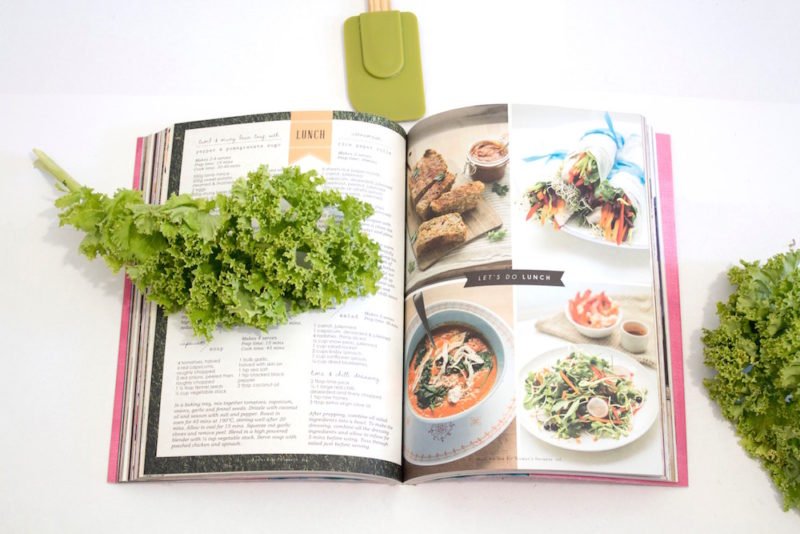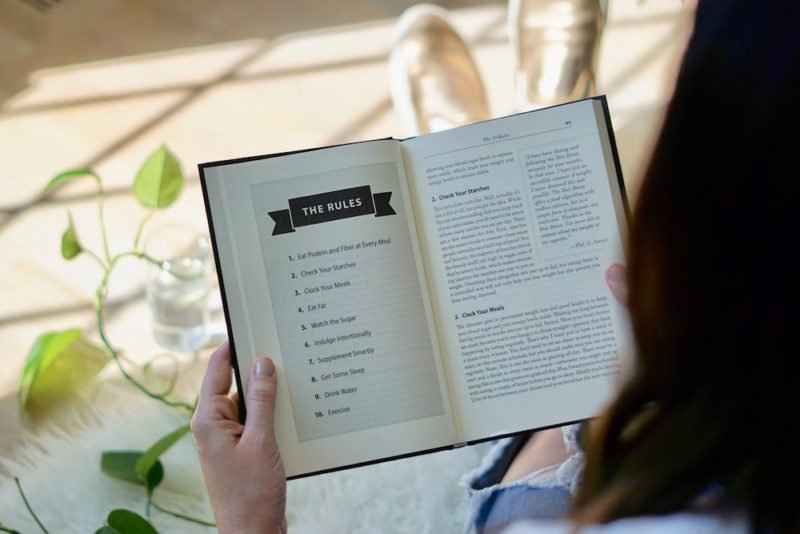
As a registered dietitian nutritionist (RDN)* who writes for a variety of publications—including two major newspapers—sometimes about controversial nutrition topics, I’ve noticed a pattern to some of the online comments I receive. Namely, they dismiss me and my words because I’m a dietitian. Often, they go further and dismiss all dietitians. Here are five of the biggest myths about registered dietitians that I see on social media and elsewhere online:
Myth 1: Our knowledge is limited to what we learned in school, and that knowledge is outdated
This myth often bubbles up when a dietitian points out that a dietary fad is based on pseudoscience (i.e., there’s no real science to support it, and/or the supposed evidence is made up). This is something we have the skills and knowledge to do—it’s not that we have limited knowledge, it’s that we know B.S. when we see it. I’ve been a dietitian for more than 5 years—an event marked by passing a hours-long standardized exam—but before that I completed more than 1,200 hours of supervised practice hours in a variety of settings, as well as earning my Master’s of Public Health in nutritional sciences from the University of Washington. That’s after taking two years of science classes—general chemistry, organic chemistry, biochemistry, biology, microbiology, anatomy and physiology—in order to even apply to grad school.
That said, my knowledge—both scientific and practical—has increased exponentially since the day I could put RDN after my name. My training gave me an excellent foundation, but our profession is so diverse—as is the science of nutrition itself—that there is so much more to learn than could possibly be crammed into one graduate program. This is why dietitians, as with other health-related professions, have to earn continuing education hours to stay current. Does that mean we are all experts in all areas? Of course not! If you had cancer, would you go to a sports medicine doctor? No, you would go to an oncologist! Totally different specialties, even though they are both part of the medical profession.
This myth does a real disservice to the countless dynamic, deeply engaged dietitians I know (and those I have never met) who are truly on the cutting edge. They’re immersed in current research (some of them actually doing research), working in areas like nutrigenomics (think personalized nutrition) and functional nutrition, and spending their hard-earned money to invest in additional learning opportunities via workshops, conferences and certification programs. Which brings me to…
Myth 2: We all work in hospitals, so unless you are sick enough to be in a hospital, we can’t help you
This one really makes me laugh, because when I decided to go back to graduate school to study nutrition and become a dietitian, my mantra was, “I do NOT want to work in a hospital.” Although I kept an open mind—and learned a lot—during the 10 weeks of my supervised practice spent in a hospital, in the end, I still did not want to work in a hospital. However, some of the students in my program really did want to work in a hospital, and now are. You’ll be thankful for that if you are ever seriously injured or gravely ill and need to be admitted to the hospital for an extended time, because a dietitian will be part of the team that may save your life.
I couldn’t possibly name all of the settings that dietitians work in, but here’s a mini-brain dump: hospitals, long-term care facilities, doctors’ offices, eating disorder clinics, private practice, spa resorts, food service, culinary schools, restaurants, public relations, media, farming/agriculture, publishing, research, higher education, public health, government/public policy, nonprofits, health/wellness start-ups, gyms, sports teams. They write, podcast, make TV appearances, create videos, develop recipes, act as spokespeople, develop products, consult with food brands, do business coaching, help women overcome infertility, teach mindful and intuitive eating, do personal training, teach yoga. I know so many dietitians who (like myself) are entrepreneurial and wear many different hats—to suggest that we are all the same is way off the mark.
Myth 3: We eat what the government tells us to, so our knowledge about nutrition is limited
Dietitians are evidence-based, and the Dietary Guidelines for Americans (what I presume people are talking about when they say “the government”) is based on the evidence. As the evidence evolves (and by evolve, I don’t mean a few isolated studies that diverge widely from the larger body of evidence), so do the guidelines. But even within those guidelines, there is diversity.
There’s the Healthy U.S.-Style Eating Pattern, which is based on the type and proportions of foods most Americans eat, but using nutritious foods in appropriate amounts. There’s also a Healthy Mediterranean-Style Eating Pattern and a Healthy Vegetarian Eating Pattern, which reflect the abundant research connecting the Mediterranean diet and plant-forward eating styles with improved nutrition and better health.
That said, I know dietitians who eat Paleo diets, vegan diets, ketogenic diets. Those diets aren’t ideal for everyone, which is one reason why they are not included in the Dietary Guidelines, but there is evidence showing that those patterns of eating can be healthful. Similarly, I know dietitians who have to follow a special diet because of specific health problem, and those also have evidence to back them. So, yes, we follow the evidence, but no, we don’t all eat the same.

Myth 4: We’re shills for the food industry
I personally hear this one all the time. When I wrote about a questionable new study regarding eggs and health a few weeks ago, some readers said I was in the pocket of “Big Ag.” When I write about a specific food that has a brand name, I get accused of being paid by the brand to write about it—which is really, really offensive because that would be totally unethical. The publications I write for pay me for my articles, and that is the extent of my compensation.
There has been some past controversy about dietitians who promoted certain food products (read: Coke) without adequately disclosing a financial relationship, but that is a problem not limited to our profession, and stricter ethical/disclosure standards are taking care of that. And, yes, at our big annual conference, our expo hall is filled with brand booths. Personally, I hone in on a short list of brands that I already like, or want to know more about. The rest don’t even register. It’s not like because they are there, all dietitians have to endorse them. We’re not sheep.
It would be really boring and not all that helpful if all dietitians talked about or wrote about was macronutrients (carbs, protein and fat), micronutrients (vitamins and minerals) and fiber. We don’t just eat protein or vitamin C, we eat food, arranged into meals and dietary patterns. That means dietitians are going to talk about food, and some of that food is going to be an agricultural commodity (eggs, beef, dairy, walnuts, oranges) and some of it is going to be a food product (veggie burgers, MSG, granola bars, almond milk) that may have a specific brand name attached to it.
I receive a lot of pitches from brands wanting me to write about their product, and delete most of them. But sometimes, a product fits into an article I was already thinking about writing. For example, faux meat had been on my “to write about” list for ages, so when I happened to receive a press release about Beyond Burger—one of the most successful products in the faux meat category—it spurred me to bump that topic to the top of the list. I bought a Beyond Burger with my own money, because how could I write about it if I’d never tried it? I write about foods and food products that are nutritious, that I would buy and use myself, and would be happy to recommend to others—whether the food came across my radar because I saw it in a store or because a company specifically told me about it.
Myth 5: We’re the food police
I get tired of this one—as does pretty much every other dietitian I’ve ever met. In my version of utopia, everyone would be happy and healthy and well-nourished. But my utopia also includes personal autonomy, so unless you seek my help in improving your nutrition and/or relationship with food, I don’t much care what you eat. You do you. I know that balanced nutrition, presented in a delicious way, is a powerful tool for health, well-being and pleasure, but practicing “good nutrition” is not a moral imperative. When a coworker/family member/new acquaintance says to me, “Oh, you probably won’t approve of what I’m eating for lunch/what I ate for dinner last night/my love of cupcakes,” I have to fight the urge to sigh and roll my eyes. Instead, I shrug and say, “You’re not my client, I don’t care what you eat.”
* Registered dietitians (RDs) and registered dietitian nutritionists (RDNs) are the same—we have the choice of which title we use. But all dietitians have at least a bachelor’s degree, most have a master’s degree, and soon all new dietitians will have to be master’s-level. We all have do have at least 1,200 hours of supervised practice and pass a grueling multi-hour exam. And we have to earn continuing education hour in order to remain in good standing with the Commission on Dietetic Registration.






